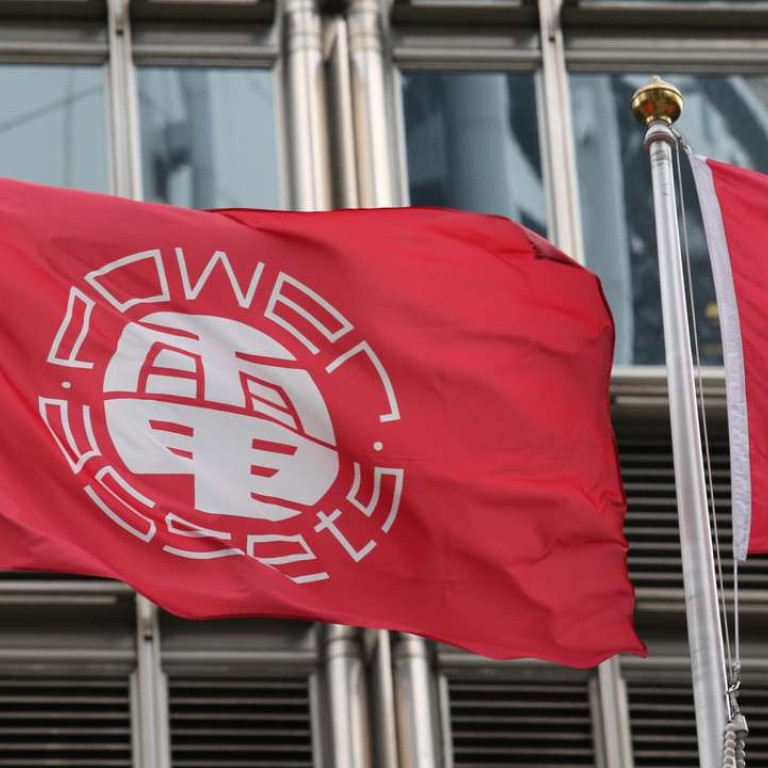
Li Ka-shing’s Power Assets shares fall after board decides against special dividend
Shares of Power Assets, an international utilities firm controlled by tycoon Li Ka-shing, fell after it said its board has decided against declaring a special interim dividend citing potential investment in three projects, including a “very substantial” one yet to be revealed.
The announcement has dashed the hopes of minority shareholders for a special payout given the firm’s cash pile of HK$68 billion as of the end of last year, largely due to a stake sale through a separate listing of its Hong Kong utilities unit, HK Electric Investments, in early 2014.
“The board considers that it is currently in the best interest of the company and its shareholders as a whole to preserve the company’s financial capacity for future acquisitions,” the company said in a statement to Hong Kong’s stock exchange soon after the morning trading session closed on Thursday.
“The Board has resolved not to declare any special interim dividend for the time being, but may reconsider the matter pending further developments.”
Power Assets shares fell 2.6 per cent to HK$74.90.
Chairman Canning Fok Kin-ning had told shareholders earlier that it would consider paying a special dividend if it fails to find investment opportunities two years after the separate listing.
Power Assets said the three projects it is pursuing included a C$865.38 million (HK$5.2 billion), 48.75 per cent stake investment in Husky Midstream announced late last month through a limited partnership to be set up with sister infrastructure investor firm Cheung Kong Infrastructure (CKI), which has pledged to buy a 16.25 per cent stake for C$288.46 million.
It was seen by some analysts as a move to shore up the finances of Alberta province-based Husky, which is majority-controlled by Li and is facing mounting debt service costs and falling cash flows amid the worst oil slump in decades.
Still, analysts said the investment is in line with Power Assets’ strategy of buying assets with stable returns and manageable risks, given the oil pipelines and storage facilities being bought are expected to provide steady cash flows regardless of energy price levels.
A second project cited by Power Assets is “a very substantial project involving an investment amount much larger than” the Husky Midstream investment.
It has “just begun working on another very substantial project of a scale comparable to” the second project, it added.
Power Assets has joined parents CKI and CK Hutchison in a bid to buy a 50.4 per cent stake in Australian power grid operator Ausgrid, estimated to be worth about A$10 billion (HK$58 billion), according to Australian media reports.
An April 29 article in the Australian Financial Review said the New South Wales state government’s wish to wrap up the sale in July could be foiled by the upcoming federal election, which it said could put all foreign bids requiring government approval on hold.
The two finalists bidding consortia led by CKI and State Grid Corporation – the monopoly power distributor in China’s all but five southern provinces and regions – will require approval by the Foreign Investment Review Board, the article said.
Power Assets’ management did not meet reporters after its annual shareholders meeting on Thursday to answer queries on its investments.
A shareholder surnamed Lam said he is “a bit disappointed” about the board’s decision to not declare a special dividend, but added that he would not sell his shares since he believes in the firm’s potential.
“The new generation of management is a bit stingy,” he said, adding he voted in November against CKI’s proposal to buy out Power Assets as the offer terms were unattractive.
“We expect [Power Assets’] near-term share price may be weak but [potential] deal flows could serve as positive catalysts for growth,” wrote Credit Suisse regional head of utilities research Dave Dai in a note after the noon announcement.

